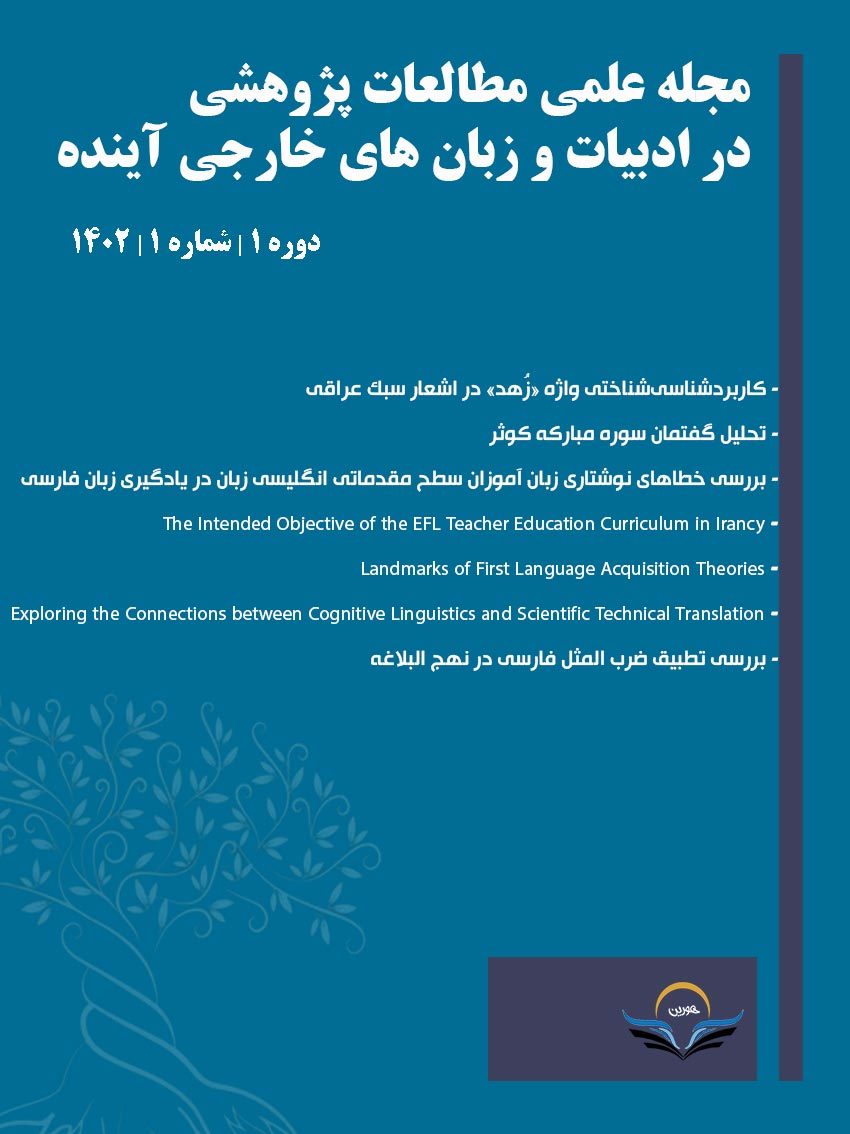کاربردشناسیشناختی واژه «زُهد» در اشعار سبک عراقی (با تکیه بر نظریات دن اسپربر و دیدر ویلسون)
کلمات کلیدی:
کاربردشناسی شناختی, کارگفت غیر مستقیم, اصل ربط, شاعران سبک عراقیچکیده
دو کاربردشناس مشهور انگلستانی به نامهای «دن اسپربر» (Dan Sperber) و «دیدر ویلسون» (Dideran Wilson)» معتقدند، بافتی که جملهها در آن شکل میگیرند را باید برای تفسیر متن در نظر گرفت. آنها اصل «ربط» را مطرح کردند که طبق آن شاعر یا نویسنده باید به میزان لازم به مخاطب اطلاعات دهد و این اطلاعات درست، بیابهام و واضح باشد. پژوهش پیش روی با روش توصیفی- تحلیلی به بررسی و بازتاب واژۀ «زاهد» در اشعار شاعران سبک عراقی، با رویکرد کاربردشناسی شناختی پرداخته است؛ هدف کلی این روش تبیین و تحلیل گفتمان عبارتها در بافت زبانی است. اشعار شاعران سبک عراقی، با ساختاری متنوع و بافت زبانی صریح و غیرصریح، تلاش دارد به انتقاد از تزویر و ریا بشتابد و نقاب ریاکاری زاهدان و زاهدنما را براندازد، در این راه استفاده از نظریاتی همانند کاربردشناسی به ویژه استعمال کارگفتهای غیرمستقیم کمک شایانی در فهم دقیقتر این واژه، ایفا میکند. نتیجۀ حاصل از این پژوهش حاکی از آن است که کارگفتهای غیرمستقیم ریاکاری و رفتاری به عنوان یک ویژگی برای واژۀ «زاهد» در نظر گرفته شده است. کارگفت رفتاری که شامل؛ تزویر، پنهانکاری، غرور، سستی و بیوفایی میشود با استفاده از تشبیه و نشانههای واژگانی و نمودها، بیان شده است. کارگفت اصلی اشعار شاعران سبک عراقی، بیان غیرمستقیم به وسیله نشانههاست، که از آن به عنوان یک حربه اصلی، برای بیان مفاهیم مورد نظر شاعران، استفاده میشود؛ اصل ربط در اشعار این شاعران نیز کاربرد فراوانی داشته و با زبانی صریح و روشن به بیان واژۀ «زاهد» و خصلتهای وی پرداختهاند.





